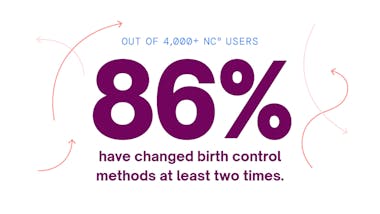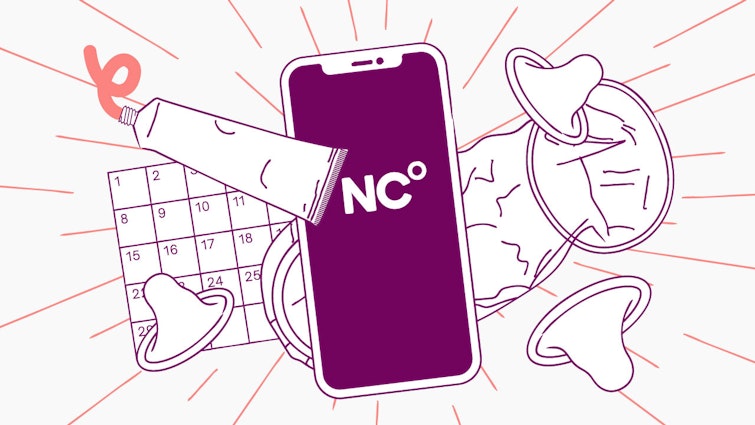5 Facts For World Contraception Day
World Contraception Day happens on the 26th of September every year and is a global campaign that aims to raise awareness of birth control and promote better sex education. To celebrate this climactic calendar date, we’ve put together five facts for World Contraception Day. Grab a coffee and get comfy, let’s take a dive into what we should all know about birth control.

1. Changing birth control methods isn’t just possible, it’s the norm
If you’ve changed your method of birth control before, you’re not alone. When we asked more than 4,000 Natural Cycles users about how often they’d changed contraception, it turned out 86% of them had changed methods at least twice. While we might not often talk about them, our needs are complicated and change throughout our lifetimes. Therefore, it’s completely natural that our birth control method may need to change too.
Reasons for switching birth control methods range enormously but include our age, medical history, beliefs, and lifestyle choices. There are many methods out there - both hormonal and non-hormonal. If you’re thinking of changing methods, it’s important to discuss your options with your doctor to find the right birth control method for you.
2. There is no one-size-fits-all when it comes to contraception
Out of those we surveyed, 76% said they switched methods because they were experiencing unwanted birth control side effects while using a previous method. This goes to show that while some methods are extremely popular and are commonly prescribed, they don’t always work for everyone.
What we want from our birth control ranges from person to person. Some will prioritize the highly effective, long-acting methods, while some will opt for a barrier method or want to go hormone-free. Each method has its own list of benefits and challenges and only you will know what one works best for you, your body, and your goals.
3. No method of birth control is 100% effective
Did you know no birth control method is 100% effective at preventing pregnancy? That’s right. Even highly effective methods like IUDs and implants still carry a very small risk of pregnancy, although they are >99% effective. When talking about birth control effectiveness, we talk about typical and perfect use, these terms reflect the way a method is intended to be used vs how it is actually used.
For example, typical use for a condom may include storing it incorrectly or putting it on wrong. These factors considered, it’s 87% effective with typical use. Whereas with perfect use, i.e. always following the manufacturer's instructions and using the condom correctly, it’s 99% effective at preventing pregnancy.
4. Birth control is a shared responsibility
An egg cell can’t be fertilized without a sperm cell. Period. While the majority of birth control responsibilities fall firmly on female shoulders, this shouldn’t be the case. Involving our partners in our birth control conversation can help share the load. However, in our survey almost 50% of participants switched contraceptive methods without their partner’s involvement.
Your body is your business, and we always want you to choose the right option for you, but we also think the future of ending the stigma around reproductive health and promoting birth control choice starts with a conversation. Sharing is caring after all...
5. Digital birth control has landed
The future rang and wants its birth control back. No, really, technology and biology have come together to deliver Natural Cycles, an app, and thermometer that are used together to determine whether or not you're fertile each day.
Basal body temperature tracking has been around for a long, long time, but now it’s been paired with an algorithm that delivers a daily fertility status without the hassle of manual charting and calculating. Natural Cycles digital birth control is the first app to be FDA cleared for use as contraception.
That’s it!
Thanks for checking out our list of birth control facts for World Contraception Day. Here at Natural Cycles we care about promoting birth control choice and want to raise awareness on all things contraception. To find out more about this and to check out our full list of activities for 2021 visit our World Contraception Day page. If you are thinking about switching methods and want to go hormone-free, why not find out if Natural Cycles could work for you?


